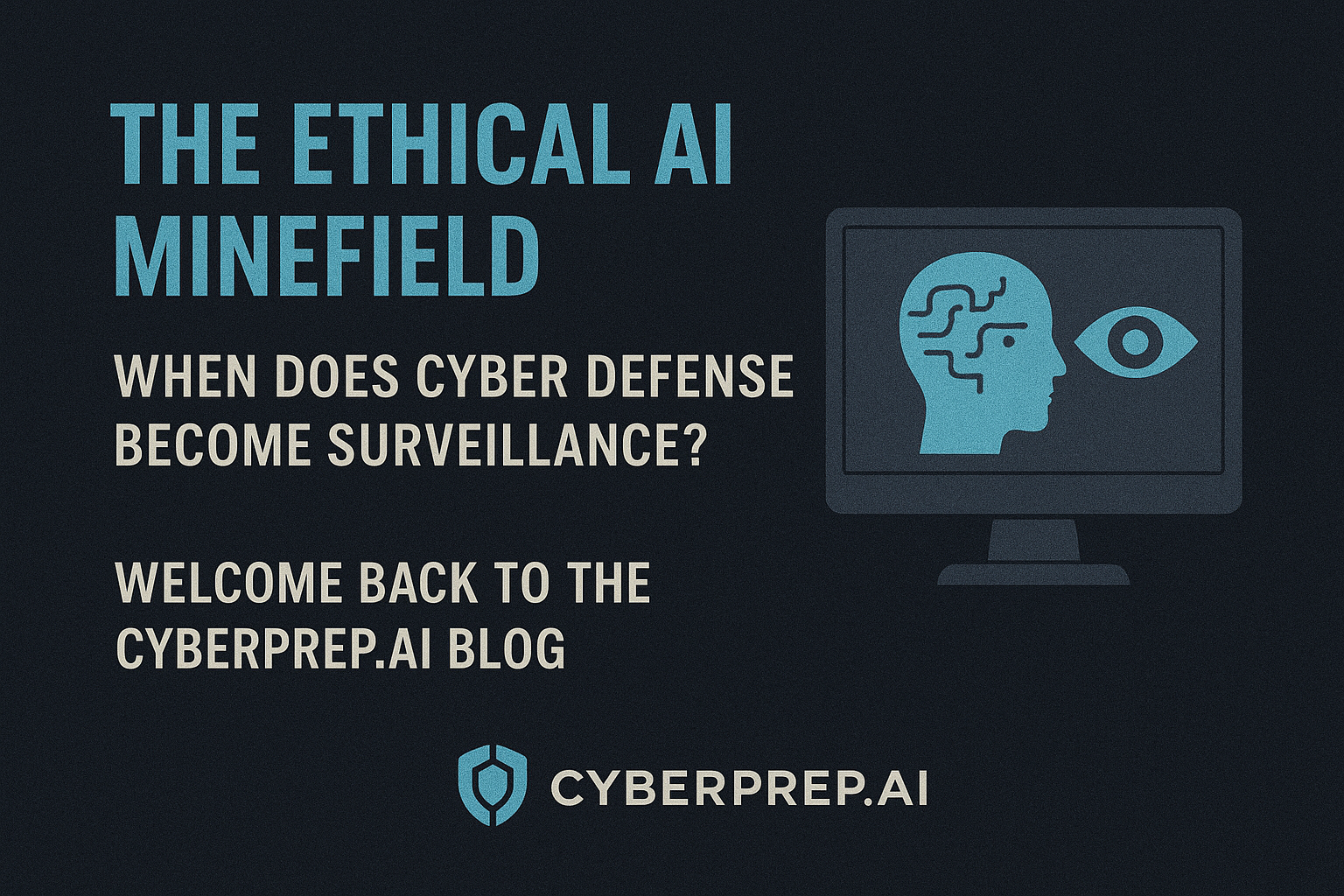Welcome back to the Cyberprep.ai blog. In our “AI Arms Race” series, we’ve explored the immense power of AI, both for attack and defense. But as we increasingly deploy sophisticated AI in our cybersecurity strategies, a critical question emerges: Where do we draw the line? When does the pursuit of ultimate cyber defense, powered by ever-more intelligent AI, begin to infringe on privacy, civil liberties, and fundamental ethical principles?
The global conversation around AI ethics is intensifying, and cybersecurity is at its epicenter. At Cyberprep.ai, we believe a truly resilient Preparedness Framework isn’t just technologically advanced; it’s also ethically sound and responsible.
The Promise vs. The Peril of Defensive AI
AI offers incredible capabilities for cyber defense: autonomously detecting threats, predicting attacks, and responding at machine speed. It can protect vast networks and sensitive data from relentless adversaries.
However, the very nature of these powerful AI systems raises profound ethical concerns:
- Mass Surveillance Potential: To detect anomalies, AI often requires access to vast amounts of data, including user behavior, communications, and network activity. When does this proactive monitoring cross into unauthorized mass surveillance, even within a corporate environment?
- Bias and Discrimination: AI systems are trained on data. If that data contains biases (e.g., historical patterns of targeting certain groups), the AI might inadvertently or explicitly perpetuate discrimination in its security flagging or response, leading to unfair treatment.
- Autonomous Decision-Making: As AI becomes more agentic, it gains more autonomy in deciding what constitutes a threat and how to respond. Who is accountable when an AI system makes a mistake, misidentifies a legitimate user as malicious, or takes an action with unintended consequences?
- “Chilling Effect” on Innovation and Speech: If employees or citizens feel constantly monitored by AI-driven systems, it could suppress legitimate online activities, critical dissent, or innovative thought, out of fear of being flagged.
- Weaponization of Defensive Tools: The same AI capabilities used for defense (e.g., deep packet inspection, behavioral analysis, facial recognition for access) could, in the wrong hands or under misguided policies, be repurposed for offensive, intrusive, or oppressive purposes.
Navigating the Ethical AI Minefield: A Global Responsibility
Addressing these ethical challenges is a global imperative, not just a technical one. Organizations must embed ethical considerations into their AI cybersecurity strategies from the very beginning. This requires:
- Transparency and Explainability: Striving for AI systems whose decisions can be understood and explained, rather than operating as opaque “black boxes.”
- Human Oversight and Accountability: Ensuring that ultimate control and accountability remain with human decision-makers, even in highly automated systems.
- Privacy-by-Design: Integrating privacy protections into the very architecture of AI security systems, minimizing data collection, and rigorously controlling access to sensitive information.
- Bias Audits and Fairness Metrics: Proactively testing AI systems for bias and implementing mechanisms to ensure fair and equitable outcomes.
- Clear Policy and Governance: Developing robust internal and external policies, guided by legal and ethical frameworks, for the deployment and use of AI in cybersecurity.
Ethical Preparedness with Cyberprep.ai
The “AI Arms Race” is not just a technological contest; it’s also a race to define the ethical boundaries of our digital future. Organizations that lead with ethical AI will not only be more secure but will also build greater trust with their employees, customers, and stakeholders.
This is a cornerstone of the Cyberprep.ai mission. Our training programs go beyond technical implementation to address the critical ethical dimensions of AI in cybersecurity. We empower leaders and teams to navigate this complex landscape, developing AI strategies that are both powerful and responsible. We help you integrate ethical decision-making into your Preparedness Framework, ensuring your security measures uphold your values.
Don’t let the pursuit of security compromise your principles. Build an AI-driven defense that is both strong and ethically sound.
Visit cyberprep.ai to explore our advanced training and lead with ethical AI in cybersecurity.

